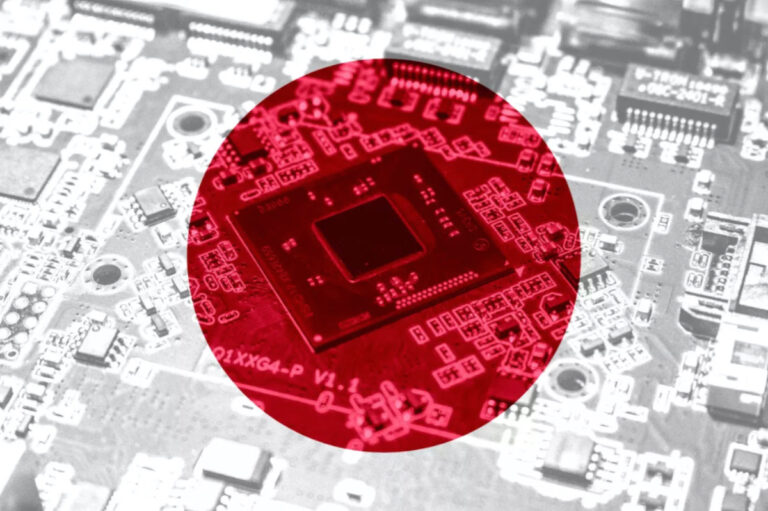Large U.S. computing and software companies, whose expansion in China has been hampered, are shifting their focus to Japan, strengthening long-standing partnerships and accelerating Japan’s return to technological competitiveness.
US tech giants Nvidia, Microsoft and Oracle recently announced new investments in data centers and related services in Japan. He also called for Japan’s participation in AI and quantum computing development projects.
In March, the new ABCI-Q supercomputer built by Fujitsu at Japan’s National Institute of Advanced Industrial Science and Technology (AIST) announced that it will be using Nvidia’s CUDA-Q hybrid quantum classic with more than 2,000 graphics processing units (GPUs). announced that it will be equipped with a computing platform. ) for high-speed computing.
(ABCI is an acronym for AI Bridging Cloud Infrastructure and CUDA is an abbreviation for Compute Unified Device Architecture.)
ABCI-Q is designed to integrate with future quantum hardware. This enables quantum simulations for research and contributes to the advancement of machine learning in areas such as AI, energy, biology, pharmaceuticals, logistics, and industry.
Masahiro Horibe, deputy director of AIST, said the new supercomputer will “enable Japanese researchers to explore quantum computing technology and accelerate testing and development for practical applications.”
If all goes according to plan, ABCI-Q is expected to be commercially available starting in 2025.
In early April, Microsoft expanded its cloud computing and AI infrastructure in Japan, opening the Microsoft Research Asia Lab in Tokyo, providing AI-related training to more than 3 million Japanese employees, and expanding its cloud computing and AI infrastructure in Japan. announced plans to invest US$2.9 billion over two years. We will support students, support AI developers and startups, and strengthen cybersecurity cooperation with the Japanese government.
The investment supports the Generative AI Accelerator Challenge (GENIAC) program led by Japan’s Ministry of Economy, Trade and Industry (METI). GENIAC was founded to help companies obtain the computing resources they need to develop foundational models for generative AI.
The Ministry of Economy, Trade and Industry believes this is essential for economic and social progress, stating:
“Generative AI is considered a technological innovation on par with the Internet and other advanced technologies. This revolutionary technology will not only help solve social problems such as labor shortages, but will also It is expected that this technology will be used in a variety of applications, and could have a major impact on industrial activities and people’s lives.”

“The ability of Japanese companies to develop generative AI is a key factor that could determine the availability of this technology in Japan and the scope of innovation that is generated.”
Microsoft, which has operated in Japan for 46 years, will provide $10 million to the University of Tokyo, Keio University and Carnegie Mellon University Artificial Intelligence Research Partnership for research projects to be carried out over the next five years. .
Some Japanese critics believe the Japanese government is giving Microsoft too much power over the country’s information infrastructure, but Prime Minister Fumio Kishida is not among them.
Mr. Kishida said, “As economic activity in the digital space increases, it is important for Japanese industry as a whole to collaborate with global companies with digital infrastructure like Microsoft.”
“We are grateful for Microsoft’s announcement of new investments in Japan. Microsoft has made significant contributions to the social implementation of generative AI in Japan through various initiatives, and we look forward to further collaboration. We also look forward to deepening our cooperation in the field of cybersecurity.”
Japan doesn’t have the time or resources to reinvent Microsoft, and unlike China, there’s no geopolitical need to do so. So do Oracle, Nvidia, and other major US technology companies.
Indeed, dependence on technology works both ways. Intel relies on Japanese semiconductor manufacturing equipment, American car companies use Japanese industrial robots, and Toyota now makes most of the hybrid cars Americans love.
Takuya Hirai, a Japanese lawmaker who previously served as the minister in charge of digital transformation and currently heads the Digital Society Promotion Headquarters of the Liberal Democratic Party’s Political Affairs Research Group, is one of Microsoft’s biggest supporters.
“The introduction of digital tools is essential for addressing Japan’s social challenges of population aging and pursuing economic growth and regional revitalization,” Hirai said.
“Microsoft’s investment is making a significant contribution to improving Japan’s AI capabilities, particularly in infrastructure and talent development. “I look forward to taking on this leadership role,” he added.

Oracle announced this month that it plans to invest more than $8 billion in Japan over the next 10 years to build new data centers there and strengthen customer support to meet the expected increase in demand for cloud computing and AI services. also announced.
Oracle Japan’s existing data centers, most of which are located near Tokyo and Osaka, will also be upgraded with Nvidia’s new GPUs.
Oracle and Nvidia are working together to deliver AI solutions to security-focused governments and private enterprises around the world.
Japan is combining Oracle’s distributed cloud, AI infrastructure, and generative AI services with Nvidia’s accelerated computing and generative AI software to secure sensitive data and individuals within the country, in accordance with the law’s digital sovereignty requirements. Used to store and process information.About protection of personal information
Hit by a number of hacking attacks in recent years, including by hackers from China and North Korea, Japan’s government and private sector are now on high alert for cybersecurity to prevent data leaks.
This, along with expanded local engineering support, should facilitate the expansion of Oracle’s distributed cloud infrastructure and services across Japan.
Targeted markets include government, telecommunications, finance, healthcare, and other data-intensive businesses and organizations.
Oracle and Microsoft are making new investments in Japan targeting Amazon. Amazon Web Services announced in January that he plans to spend about $15 billion by 2027 on new data centers to support the Japan-based cloud computing service.
Follow this writer on X: @ScottFo83517667

